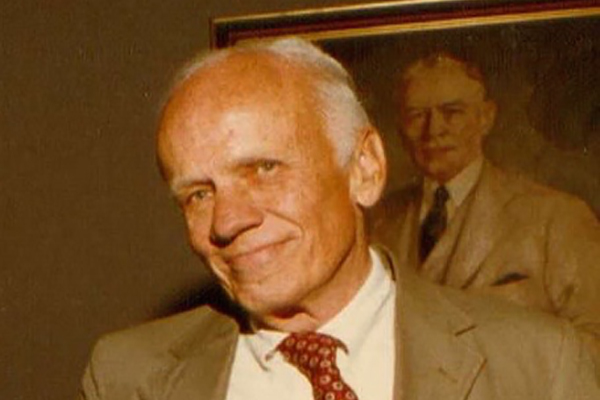
In every philosophy course that I teach at St. John’s University at some point in the course I sketch a philosophy of person that I have borrowed from contemporary philosophies such as existentialism, personalism, phenomenology and contemporary Thomism. I hope the students will find the view of person interesting, exciting and most important, true and helpful in making sense of their own experience. In his “Building the Human” (New York: Herder and Herder, 1968, pp. 192) Robert O. Johann, in commenting on a contemporary view of the human person as a responder and a creator, wrote the following:
“Man’s life is viewed as a process of interaction with the natural, social and religious forces that make up his environment, and its meaning hangs on the sort of response he gives to them.
“What this response should be is suggested by the second component, creativity. The image of creativity is drawn from the fine arts. Man is an artist called to shape the stuff of daily experience into something more adequately expressive both of his own originality as a person and of that transcendent plenitude to which, as a person, he is open. His encounter with his surroundings is meant to be a creative process in which both they and he are fulfilled. This means that the world of man is essentially open to change. It is there to be transformed, not merely endured. Like the artist struggling with a stubborn medium, whose possibilities he can only gradually realize and never exhaust, man is called continually to grapple with the world around him with a view to its endless enhancement.” (p. 65)
I love the idea of endless enhancement. Johann’s sketch of the human person as a responder and a creator is basically the view of person that I present to students at St. John’s University. The main reason that I present this philosophy of person to college students is that I believe it to be profoundly true and also that I hope it will motivate l students to take responsibility for their life and their future. By stressing that a human person is a responder and a creator I am hoping that students will reflect deeply on what they are responding to and become critical of how they are creating their future. In creating us God has created creatures wrapped in mystery. We can always probe more deeply into who we are and where we are going. I begin a course entitled “An Introduction to the Philosophy of Person” by informing the students that we are going to spend an entire semester trying to answer these two questions: “Who am I?” and “Who are we?”
Years ago, in several of his novels, Catholic existentialist novelist Walker Percy depicted characters stuck in what Percy called the “malaise”. By malaise I believe he meant a state of confusion in which a person was merely drifting through life with little insight into self-identity, no vision of a meaningful future and no motivation to make a commitment. For someone stuck in the malaise, life is boring and it is difficult to become excited or enthusiastic about anything. Early in his novel “The Moviegoer,” Percy writes that his main character, Binx Bolling, is on a search. Posing the question “What is the search?” Percy claims that the search is what anyone not stuck in the malaise would undertake. I am concerned that the malaise might be more present today than it was more than fifty years ago when Percy wrote his novel.
If we put Johann’s insights into a faith perspective, I think they become clearer, more exciting and more beautiful. God creates us from nothing and places us in an environment that is filled with challenges. How significant are our lives? Incredibly significant! We are called to be gift-givers, to be people who live our lives the manner of a gift, which is another way of saying that we are called to be lovers!
Our vocation is to shape our environment with the Word of God as our model. We are called to influence our environment through the Good News of Jesus Christ. Our vocation would be impossible without the presence of Christ’s Spirit within us, inspiring us, motivating us, encouraging us. Jesus has redeemed the world and all peoples and we are invited to be part of the Father’s redemptive plan. I frequently say to students in my classes “If there is anyone in this room who has an inferiority complex, get over it!” Each of us is exceptionally important in God’s plan. There is no such reality as an unimportant person. Even if God wanted to, God could not create an unimportant person. We are called to be channels of God’s love, ambassadors of Christ.
Father Lauder is a philosophy professor at St. John’s University, Jamaica. He presents two 15-minute talks from his lecture series on the Catholic Novel, every Tuesday at 9 p.m. on NET-TV.
